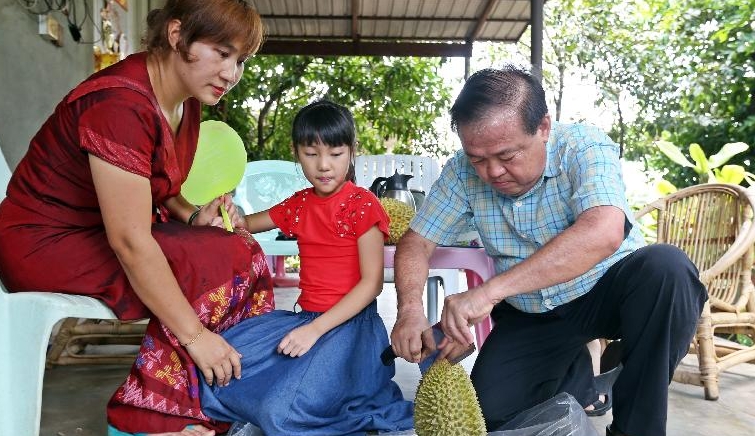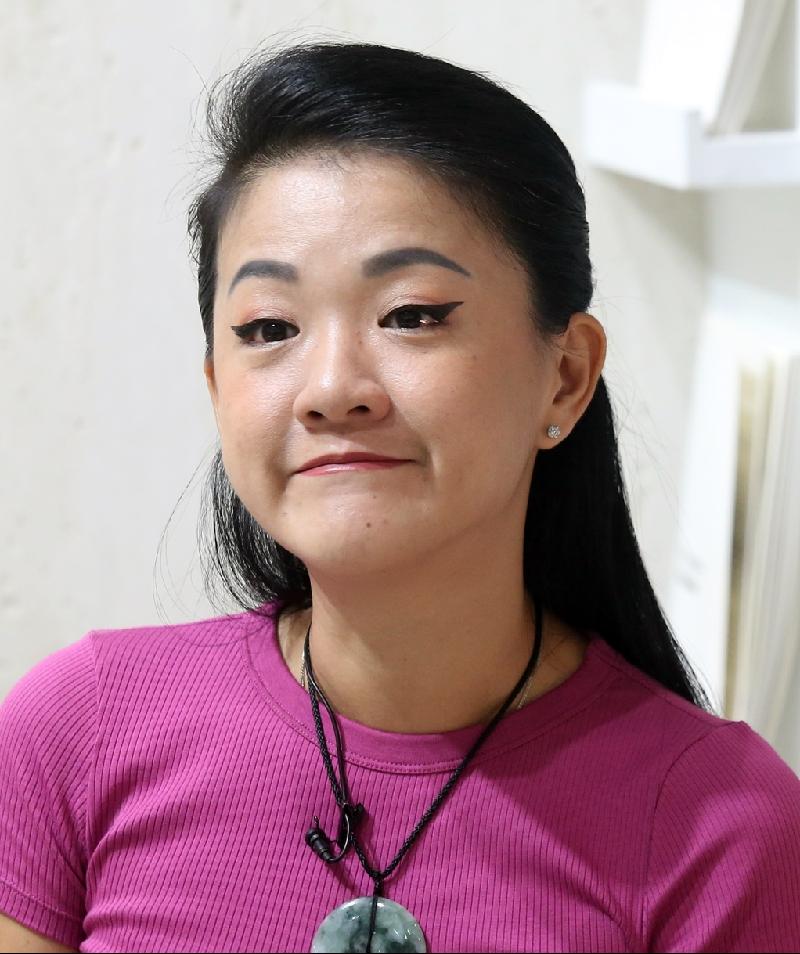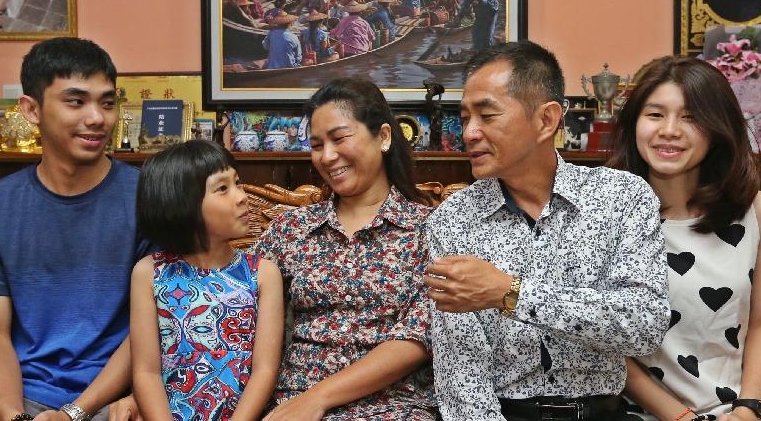
There is a fruit orchard outside Yangon grown with Musang King and Black Thorn durian variants as well as jackfruit and other fruit trees.
Owner of the orchard is 63-year-old Malaysian Choo Hiow San.
When Choo purchased the land some ten years ago, a friend thought he was crazy simply because the weather in Myanmar was not the same as in Malaysia and it was questionable whether his trees would bear fruits.
When the friend visited the orchard four or five years ago, he said Choo had done the right thing!
Doing business here is tough
Choo was in fish ball business back in Malaysia. His business was not bad initially but came to a standstill in mid-1990s due to labor crunch.
"A friend told me Myanmar was very good. Full of resources and the raw materials I needed."
So he ended his Malaysian business and came over to Myanmar with a friend for investment.
After arriving in Myanmar, he learned that things were not as easy as he had thought.
"Some of the culture here is beyond the apprehension of outsiders like us. For example, when we feel that we can't to something, we would just say 'no', but to the local people, rejecting people is rude, and we didn't know about this."
He later quit this line and went into some other businesses such as food seasonings and dishwashing detergents.
Communication was poor at that time, and Choo had to travel all across the country to explore his market.
"I know Myanmar much better than many local people."
He later bought this plot of land outside Yangon. In addition to a small scale food seasoning plant, he also grows jackfruit, Musang King and Black Thorn durian.
"Doing business is tough in Myanmar, and doing business with Myanmar people in Myanmar is even tougher."
When asked whether Choo, who has lived in Myanmar for 22 years, whether he would go back to Malaysia to start a new career there, he said, "What can I do there?"
Nostalgic feeling

43-year-old Lay Goon is one of a handful of Malaysian businesswomen that dare to take up the challenges venturing alone in a country like Myanmar.
When a friend asked Lay Goon whether she wanted to come to Myanmar to help, she had no idea where the country was.
"I was actually quite excited setting my feet on Myanmar for the first time because it felt like Malaysia in the 1980s, some kind of nostalgic feeling."
This country was still very backward seven or eight years ago. "No highrises and foreign investments here, unlike today."
Former president of the Malaysian Association of Myanmar, Lay Goon naturally knows a lot of Malaysians living in Myanmar. She said those who came here during the early years were mostly Chinese Malaysians doing business here, but later we have people from other races coming here, including expatriates sent by their companies.
While many have come here to seek business prospects, more have left this place in disappointment.
"Doing business is not so easy here," Lay Goon admitted.
She herself had two failed experiences, including her organic fertilizer business plagued by bad loans. She is now working at a foreign ceramic tile company.
"You need to learn the culture here to survive!"
She said she would continue to live in Myanmar because she was still looking for new opportunities here and she has already grown accustomed to life in this country.
Need to learn local culture

Any Malaysian businessman in Myanmar should know Chia Wing Huat who started with his seafood business before diversifying his business to include also plastic product manufacturing and oil palm plantation. The soft shell crabs he breeds in his farm in northern Myanmar are exported to Malaysia, USA as well as Australia.
He came to Myanmar with only US$1,000 in 1994.
"Starting a business here can be very difficult but also easy.
"It was difficult because the country was not yet opened up to the outside world and capital flow was very limited. It was easy because there was hardly any competition at that time. So, profit margins are very high!
"The early bird gets it all!"
the 55-year-old businessman confessed that business was getting more and more challenging after the country was open to the outside world.
"Many Malaysian businessmen opt to leave the country in recent years. Basically we have more failures than successful instances."
He advised Malaysians keen to do business in Myanmar to first understand the country's culture.
"The market surveys of many people focus only on the country's policies and laws, and have neglected the culture here. They only think of what they want and not what the local people want.
Chia admitted that he never thought of settling down in Myanmar. Today, he is married with three children.
Myanmar used to see anti-Chinese incidents in the 1960s but things have changed now. Beginning four years ago, the Chinatown of Yangon would be lit up during the Chinese New Year celebration each year.
"This is a good thing for the local Chinese community. It shows that the government indeed appreciates the Chinese people here."
Still identifying himself as a Chinese Malaysian, Chia returns to Malaysia six or seven times a year even though he has been living in Myanmar for 26 years now.
he has a driver, a maid and a cook here, and his wife and children are all here. He admitted that his life in Myanmar was very comfortable and couldn't get used to life in Malaysia.
ADVERTISEMENT
ADVERTISEMENT


































